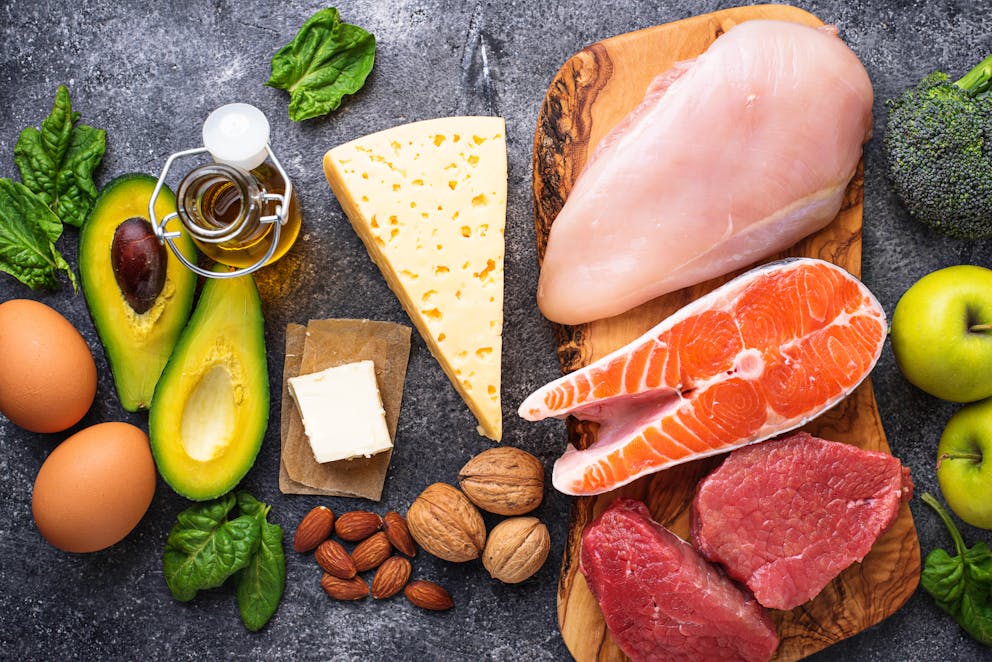What is Vitamin K2?

25 Top Supplements That Really Work
Discover the most effective supplements to promote a healthy body
Learn about key supplements to support digestion, brain function, energy, and more
Understand how to manage common health issues with specific supplements

25 Top Supplements That Really Work
Discover the most effective supplements to promote a healthy body
Learn about key supplements to support digestion, brain function, energy, and more
Understand how to manage common health issues with specific supplements

25 Top Supplements That Really Work
Discover the most effective supplements to promote a healthy body
Learn about key supplements to support digestion, brain function, energy, and more
Understand how to manage common health issues with specific supplements

25 Top Supplements That Really Work
Discover the most effective supplements to promote a healthy body
Learn about key supplements to support digestion, brain function, energy, and more
Understand how to manage common health issues with specific supplements

25 Top Supplements That Really Work
Discover the most effective supplements to promote a healthy body
Learn about key supplements to support digestion, brain function, energy, and more
Understand how to manage common health issues with specific supplements

25 Top Supplements That Really Work
Discover the most effective supplements to promote a healthy body
Learn about key supplements to support digestion, brain function, energy, and more
Understand how to manage common health issues with specific supplements

25 Top Supplements That Really Work
Discover the most effective supplements to promote a healthy body
Learn about key supplements to support digestion, brain function, energy, and more
Understand how to manage common health issues with specific supplements

Beginner’s Guide to Healthy Keto & Intermittent Fasting
Receive a step-by-step guide to starting Healthy Keto® and intermittent fasting
Learn about foundational principles and best practices for beginners
Get detailed visual guidance on portion sizes and meal composition
Discover how to set achievable goals and monitor your progress
Find practical tips for overcoming common challenges and staying motivated

Beginner’s Guide to Healthy Keto & Intermittent Fasting
Receive a step-by-step guide to starting Healthy Keto® and intermittent fasting
Learn about foundational principles and best practices for beginners
Get detailed visual guidance on portion sizes and meal composition
Discover how to set achievable goals and monitor your progress
Find practical tips for overcoming common challenges and staying motivated

Beginner’s Guide to Healthy Keto & Intermittent Fasting
Receive a step-by-step guide to starting Healthy Keto® and intermittent fasting
Learn about foundational principles and best practices for beginners
Get detailed visual guidance on portion sizes and meal composition
Discover how to set achievable goals and monitor your progress
Find practical tips for overcoming common challenges and staying motivated

Beginner’s Guide to Healthy Keto & Intermittent Fasting
Receive a step-by-step guide to starting Healthy Keto® and intermittent fasting
Learn about foundational principles and best practices for beginners
Get detailed visual guidance on portion sizes and meal composition
Discover how to set achievable goals and monitor your progress
Find practical tips for overcoming common challenges and staying motivated

Beginner’s Guide to Healthy Keto & Intermittent Fasting
Receive a step-by-step guide to starting Healthy Keto® and intermittent fasting
Learn about foundational principles and best practices for beginners
Get detailed visual guidance on portion sizes and meal composition
Discover how to set achievable goals and monitor your progress
Find practical tips for overcoming common challenges and staying motivated

Beginner’s Guide to Healthy Keto & Intermittent Fasting
Receive a step-by-step guide to starting Healthy Keto® and intermittent fasting
Learn about foundational principles and best practices for beginners
Get detailed visual guidance on portion sizes and meal composition
Discover how to set achievable goals and monitor your progress
Find practical tips for overcoming common challenges and staying motivated
Vitamin K2 benefits are often overlooked in discussions about essential nutrients. This vitamin is crucial in various bodily functions, from cardiovascular health to bone strength.
Learn about the benefits of vitamin K2, signs of a deficiency, and how you can incorporate more into your daily life.
Understanding Vitamin K2 and Its Importance
The world of vitamins is vast, but today, we'll focus on one player: vitamin K2. This fat-soluble vitamin significantly optimizes our bodily functions, which sets it apart from its sibling, vitamin K1.
The Vital Role of Vitamin K2
While both vitamins are crucial for our well-being, they have distinct roles. Vitamin K1 plays an essential part in blood clotting and constructing bones.
On the other hand, vitamin K2 takes center stage by binding calcium within our bones and removing it from soft tissues. These vital functions not only boost metabolism but also enhance exercise endurance.
Understanding the different forms of vitamin K can be complex due to their various subtypes. Each type of this critical nutrient plays a unique part in maintaining our overall health.
Dietary Sources of Vitamin K2
Look no further if you're wondering where to find this powerful nutrient. There are plenty of dietary sources rich in vitamin K2 available at your local grocery store.
Grass-fed animal products like liver or meats and certain cheeses like gouda or brie are excellent sources if you know where to look.
In addition to these foods, egg yolks provide substantial amounts of vitamin K2.

Benefits of Vitamin K2 for Heart Health
Vitamin K2 is a nutrient gaining recognition for promoting cardiovascular health. It is increasingly apparent that vitamin K2 plays a part in maintaining cardiovascular well-being by hindering coronary heart illness and reducing calcification of arteries.
The Link Between Vitamin K2 and Cardiovascular Health
One of the primary ways vitamin K2 benefits our heart health is through its function in calcium regulation within our bodies. This vitamin activates proteins that ensure calcium does not accumulate where it should not, such as in our arteries.
If too much calcium deposits into your blood vessels, they can become stiff or even clogged - a condition known as calcification. Calcification leads to various forms of cardiovascular diseases.
Therefore, maintaining adequate levels of vitamin K2 may be an effective strategy against these risks.
Research indicates that individuals with pre-existing heart conditions could significantly benefit from vitamin K2 supplements to prevent further calcification in their arteries and blood vessels.
Beyond preventing artery hardening, ample intake of this vital nutrient may also help suppress inflammation within the body—a factor closely associated with coronary conditions—thereby reducing overall risk factors connected with poor cardiac health.
Nutritional Sources Rich In Vitamin K For Improved Cardiac Health
We often associate foods rich in vitamins like kale or spinach primarily containing only one type—vitamin K1—not necessarily the variant we're discussing here—K2.
However, specific cheeses like Gouda or Brie cheese provide substantial amounts.
For those who do not consume dairy products or have specific dietary restrictions, supplementing their diet with vitamin K2 pills is an effective way to ensure optimal intake.
How Vitamin K2 Contributes to Bone Health
The often underappreciated role of vitamin K2 in bone health is crucial, as it plays a significant part in the process known as bone mineralization. Acting like a guiding star, this nutrient helps steer calcium into our bones and teeth where needed most.
Vitamin K2 doesn't work alone; it collaborates with other vital nutrients, such as vitamin D and magnesium. This team effort improves overall bone strength and reduces fracture risks.
Insufficient vitamin K2 intake has been linked to osteoporosis, which weakens bones and increases the risk of fractures.
Recent research highlights how menopausal women could benefit from supplementing their diet with vitamin K2. Hormonal fluctuations during menopause can cause a sudden decrease in bone density, but incorporating vitamin K2 into one's diet may help to reduce this effect.
The Impact Of Vitamin K2 On Osteoporosis Prevention
Osteoporosis isn't just about aging or post-menopausal women—it’s also about nutrition, including vitamins like vitamin K2, which have been shown to delay or even prevent its onset.
A study published in 2006 demonstrated promising results when using vitamin K2 supplements among patients diagnosed with osteoporosis: improved density measurements and reduced fractures were observed.
Vitamin K2 Supplementation For Improved Bone Strength
Taking vitamin K2 does more than ward off diseases like osteoporosis—it enhances general bone health through improved strength too.
This strengthens because vitamin K2 activates proteins responsible for binding calcium – the main component forming hard tissues within our body such as teeth and bones - thus contributing to their structural integrity.
Incorporating enough vitamin K2 into your diet or supplementation routine could significantly boost your skeletal system’s resilience against degenerative conditions while promoting more robust, healthier structures.
Remember to consult healthcare professionals before starting any new dietary supplement regimen, especially if dealing with medical issues relating to specific nutritional needs.
Vitamin K2 Benefits for Dental Wellness
Let's not forget vitamin K2's key role in keeping our teeth healthy. It beefs up tooth enamel, which cuts down on cavities and decay. Its anti-inflammatory perks can fend off gum diseases like gingivitis and periodontitis.
Role of Vitamin K in Blood Clotting and Vessel Health
Vitamin K, specifically its variant vitamin K2, is renowned for its crucial function in blood coagulation. This vitamin catalyzes to convert prothrombin into thrombin - an essential enzyme that enables blood clotting.
The Vital Role of Vitamin K in Blood Coagulation
The process through which our body prevents excessive bleeding by forming clots heavily depends on vitamin K. Upon injury; your body initiates a series of events leading to clot formation, where vitamin K plays a central role.
It empowers proteins like prothrombin and factors VII, IX, and X involved in this process to bind calcium ions effectively.
If there is an insufficiency of this vital nutrient within our system or any disruption in the metabolic pathway, it could result in abnormal bleeding patterns or hemorrhagic conditions.
Therefore, ensuring adequate levels are maintained is paramount for overall health.
Promoting Vascular Health with Vitamin K
Beyond facilitating healthy coagulation processes, vitamin K contributes significantly towards maintaining vascular health by inhibiting arterial calcification—a prevalent factor contributing to cardiovascular diseases.
Vitamin K inhibits the accumulation of calcium on vessel walls, thereby mitigating risks associated with hardening arteries.
This unique action can be attributed mainly to two specific proteins—Matrix Gla Protein (MGP) and Gas6—which rely upon vitamin K activation.
These proteins work synergistically, preventing unwanted calcification while promoting cell growth and survival within vessels, keeping them flexible and robust throughout the lifespan.
Sourcing Dietary Intake of Vitamin K and Its Absorption
Ensure you're eating enough greens, eggs, and dairy daily. This way, we get all the good stuff our bodies need.

Vitamin K2 source for Keto Diet
Sufficient vitamin K2 is essential for maintaining optimal bone and heart health, making it a valuable consideration in a keto diet. This nutrient is found in various sources, including kimchi.
However, before incorporating kimchi into your keto diet, it's essential to determine if it aligns with your overall carbohydrate goals.
While kimchi can offer potential benefits due to its probiotic content, ensuring it fits within your desired carb limits to maintain ketosis effectively is essential.
Conclusion
Vitamin K2 is an often-overlooked but essential nutrient that plays a significant role in various bodily functions, including cardiovascular health, bone strength, blood clotting, and dental wellness.
Incorporating vitamin K2-rich foods into your diet, such as grass-fed animal products, certain cheeses, and egg yolks, can help ensure optimal intake. Moreover, supplementation may be necessary for individuals with specific dietary restrictions or those at risk of deficiency.
By understanding the importance of vitamin K2 and taking steps to incorporate it into your daily life, you can support overall health and well-being.
However, it's crucial to consult with healthcare professionals before making any significant changes to your diet or supplementation regimen. With proper attention to vitamin K2 intake, you can harness its benefits for a healthier, more vibrant life.
Previous blog
Can You Get Enough Vitamin D just with FoodsTags

Popular
08/21/2024
55K views
02/23/2025
46.3K views
11/18/2024
277.5K views
03/18/2024
11/21/2022




